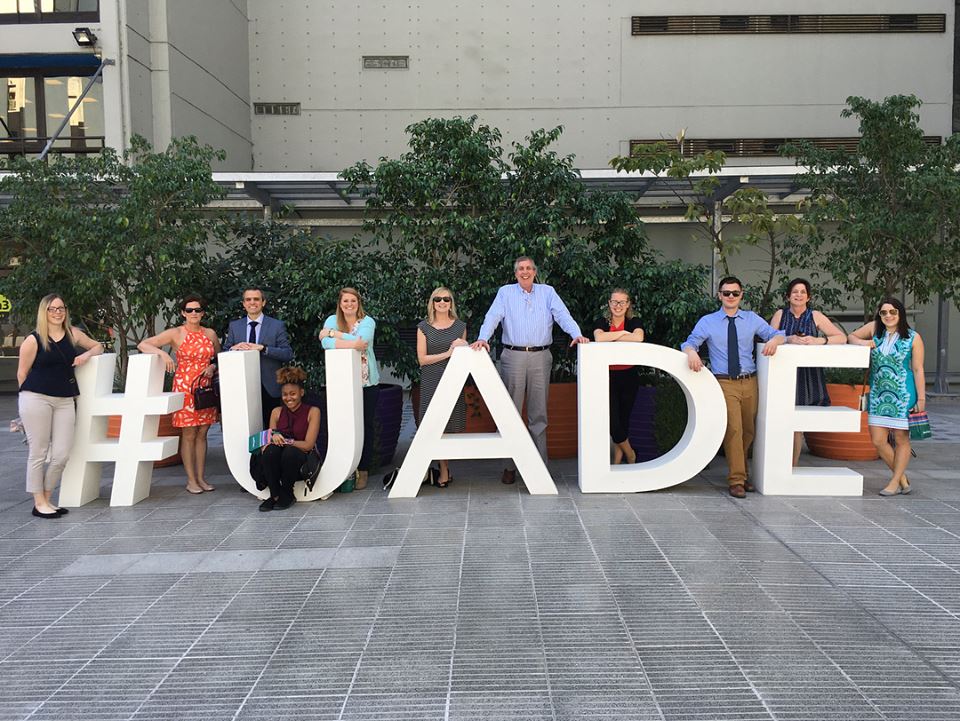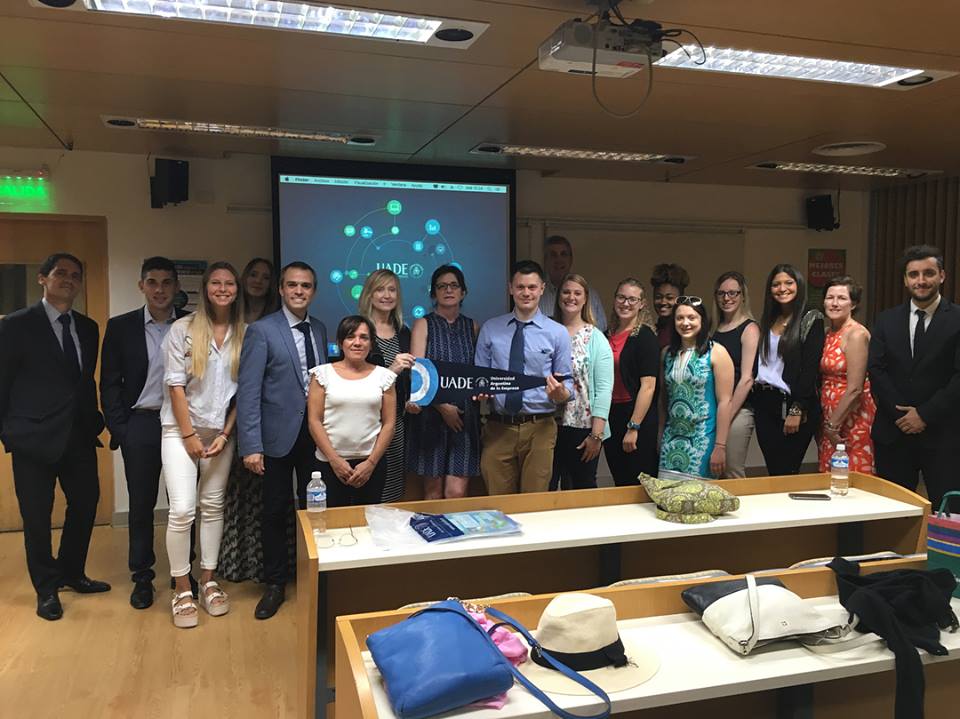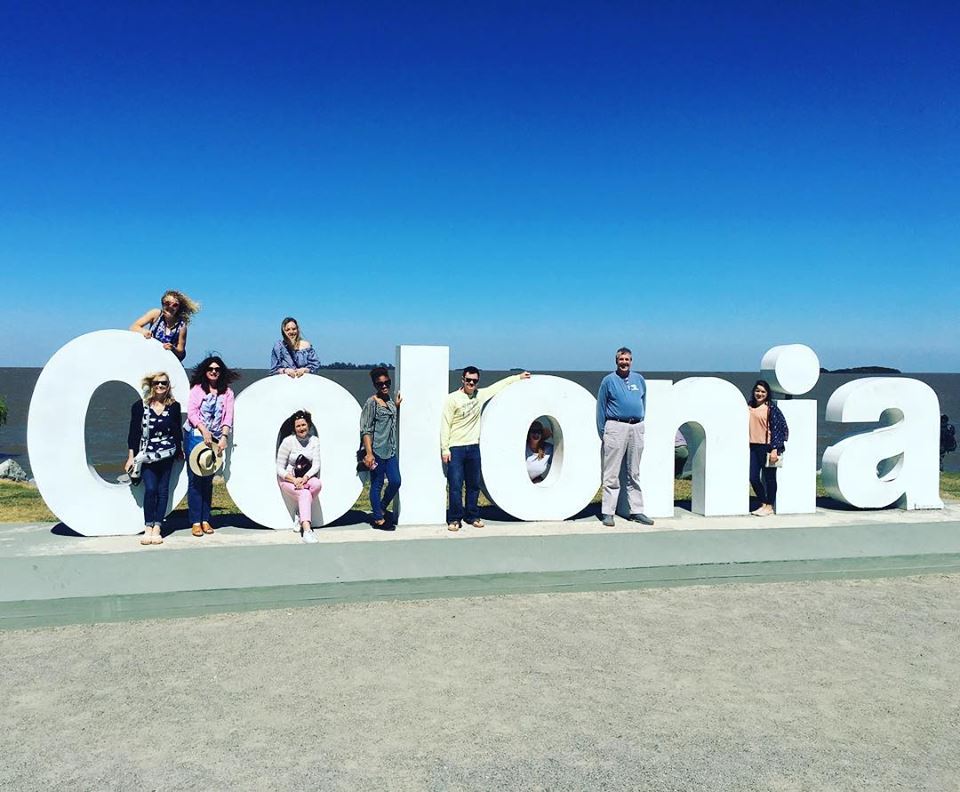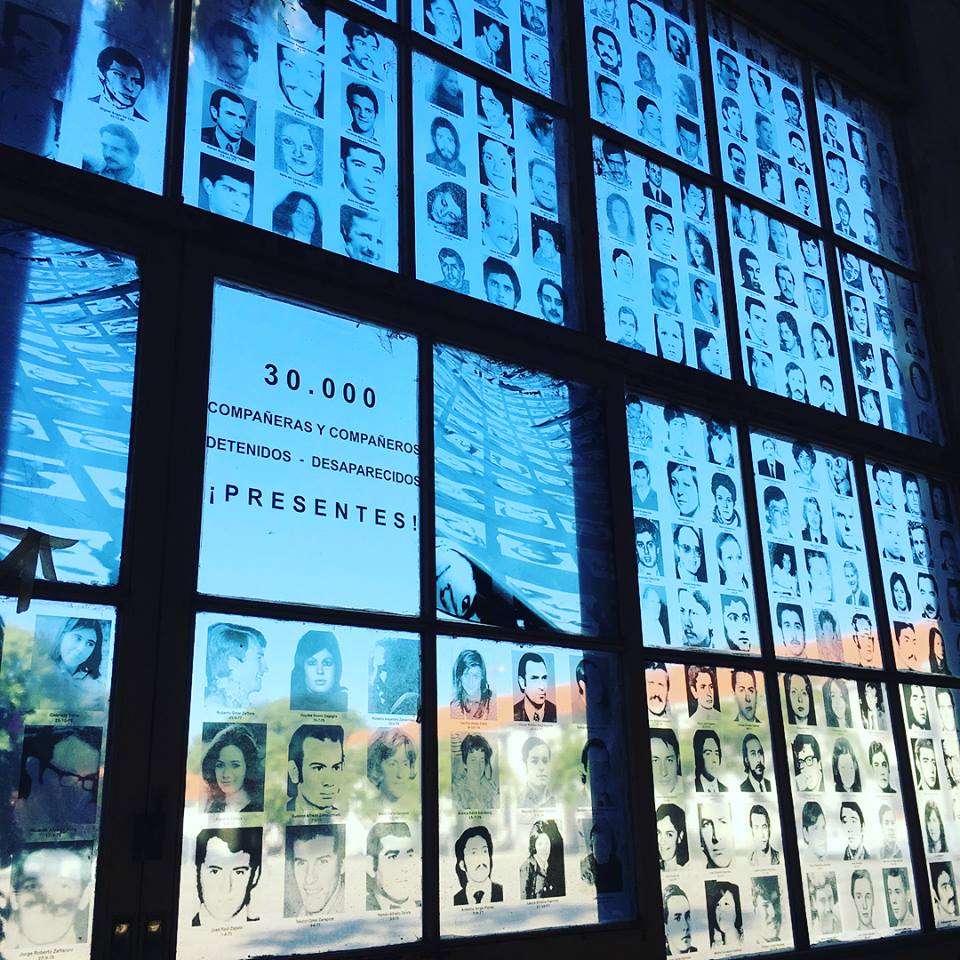Dayton Docket

A Spring Break Trip To Last A Lifetime
By Lauren Karch
In March, ten University of Dayton students and alumni traveled to Argentina as part of the Lawyer as Global Citizen spring break program. Through volunteering in Buenos Aires, meeting Argentine law students, and engaging with Argentinian law and human rights history, the group participated in a trip that was part culture, part immersion.
Judge Mary Kate Huffman, an adjunct at the law school and former president of the UDSL Alumni Association, describes the program as multi-dimensional: combining service, immersion, and alumni-student interaction under the Marianist mission shared by the University of Dayton and the group’s Argentine partners. Huffman has previously served as an organizer for UDSL spring break trips to Guatemala in 2014 and Ecuador in 2016.
“These trips meet so many of the various missions of the law school, and of a law school,” she said. “The law is a serving profession. We should consider the question of, how can lawyers serve in addition to serving their clients.”
 The students and alumni served meals to students at Our Lady of Fatima, a Marianist primary school in the slums of Buenos Aires, providing a welcome relief for the three-person staff that usually serves more than 700 students each day. In addition, they were paired with students at a Colegios Marianistas, a Marianist high school, for a day touring the school and speaking in classrooms.
The students and alumni served meals to students at Our Lady of Fatima, a Marianist primary school in the slums of Buenos Aires, providing a welcome relief for the three-person staff that usually serves more than 700 students each day. In addition, they were paired with students at a Colegios Marianistas, a Marianist high school, for a day touring the school and speaking in classrooms.
“For the students, the experience was eye-opening - to see how people live, how they are educated, the facilities they have compared to what our students have experienced in their lives,” said Huffman.
Huffman said the trip also fostered a continuing connection between UDSL students and alumni: “For many of the alumni, this was an opportunity to engage with students at their alma mater and assist them in their transition to the profession.”
Kyle LaBuff, a 2014 graduate and former Student Bar Association president, was the youngest alum on the Guatemala trip and the most recent one. LaBuff currently works in real estate law, and previously worked as a public defender in Connecticut. He said sending students and alumni on immersion trips helps the university represent itself overseas, and appreciated the diplomatic aspect of his most recent experience.
 “The world’s getting smaller, and travel like this gives us an advantage and gets our name out there. I was extremely confident in our ability to extend diplomacy in a way that is good for the law school and for the country,” LaBuff said. “I would encourage students to consider a trip like this, to get comfortable with being uncomfortable and engaging with a different culture and legal system.”
“The world’s getting smaller, and travel like this gives us an advantage and gets our name out there. I was extremely confident in our ability to extend diplomacy in a way that is good for the law school and for the country,” LaBuff said. “I would encourage students to consider a trip like this, to get comfortable with being uncomfortable and engaging with a different culture and legal system.”
After days of service with primary and secondary school students, the UDSL group visited la Universidad Argentina de la Empresa (UADE), a Buenos Aires college, and spent time with Argentine law students.
Beth Herdmann, president of the Student Bar Association and of UDSL’s Human Rights Awareness and Advocacy Group, said she enjoyed the opportunity to discuss legal topics with the other students.
“This was a time, even though language was sort of a barrier, that we could ask each other questions and really unite on legal issues, and learn about one another’s backgrounds.”
The lawyers and students compared legal education systems - Argentinian attorneys are trained through undergraduate programs, either through private schools or Argentina’s subsidized public colleges - as well as the differences in the law itself. Argentinian judges are appointed, not elected, and trial by jury does not exist. Other areas of divergence were the death penalty and castle doctrine, neither being a part of the Argentine court system.
 Herdmann, who plans to work in human rights law, said learning about Argentina’s human rights history provided valuable context in understanding its legal climate, and the present-day issues facing the country. The group visited the former site of the Escuela Superior de Mecánica de la Armada (ESMA), a naval academy used as a secret detention center during the country's "Dirty War," a horrific period of military dictatorship from 1976-1983.
Herdmann, who plans to work in human rights law, said learning about Argentina’s human rights history provided valuable context in understanding its legal climate, and the present-day issues facing the country. The group visited the former site of the Escuela Superior de Mecánica de la Armada (ESMA), a naval academy used as a secret detention center during the country's "Dirty War," a horrific period of military dictatorship from 1976-1983.
“Basically, the people who were ‘disappeared’ by the military dictatorship in the 1970s were writers, journalists, artists - anyone considered a political dissident,” Herdmann explained. Today, the ESMA is used partially as a museum and memorial to the 30,000 Argentine citizens who disappeared under the state’s military juntas.
Members of the UDSL group also observed, and marched with, the Mothers of the Plaza de Mayo, Argentine women whose children were kidnapped during the Dirty War, when infants born in centers like the ESMA were illegally adopted by members of the junta. The Mothers march every Thursday in front of the Casa Rosada, Argentina’s presidential palace, to raise awareness of human rights issues across the globe.
“It was very, very moving,” Herdmann said.
Huffman, as well as other alumni, plan to be involved with Lawyer as Global Citizen spring break trips in the future, continuing the pace of planning a trip every two years or so and retaining the aspect of cultural immersion and service, in partnership with other Marianist communities.
“There are Marianists engaging in service around the world, whether as lay or clergy. We just have to find our next fit,” she said.
